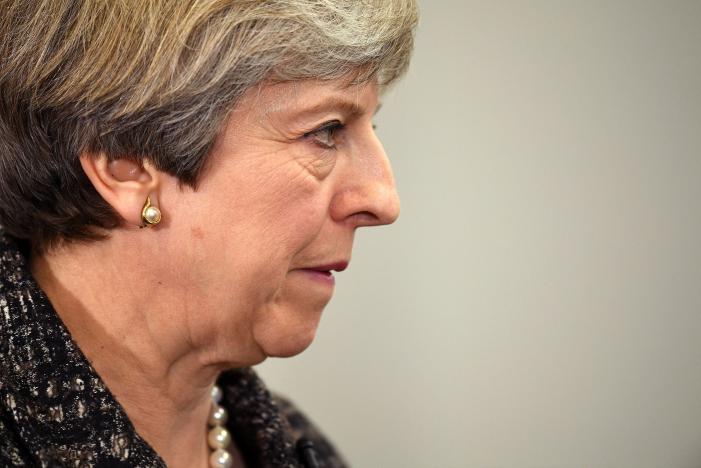British Prime Minister Theresa May is expected to make a sweeping victory in elections in June, revealed opinion polls.
He ruling Conservative Party is set to win around 50 percent of the vote, double that of the opposition Labor party.
May’s decision to call a June 8 election stunned her political rivals this week and a string of polls released late on Saturday suggested the gamble had paid off, with one from ComRes showing the party of Margaret Thatcher enjoying levels of support not seen since 1991.
May, appointed prime minister in the turmoil that followed Britain’s vote to leave the European Union last June, said she needed the election to secure her own mandate and strengthen her hand for the Brexit negotiations ahead.
She is also looking to capitalize on the disarray swirling around the Labor party, which has been riven with internal division over its leader Jeremy Corbyn. Voters also appear to be switching from the anti-EU UKIP party, which helped campaign for Brexit, to May’s Conservatives, which will likely deliver it.
“The announcement of a snap election has clearly focused the minds of the electorate,” said James Crouch at pollster Opinium.
In two other polls, May’s Conservatives also gained ground in Scotland at the expense of the Scottish National Party, potentially weakening the nationalists’ demand for another independence referendum.
May has already warned her party not to take victory for granted, a message that was echoed by pollsters on Saturday.
“While no political party could ever object to breaching the 50 percent barrier for the first time this century, this spectacular headline result masks a real danger for the Tories,” said ComRes Chairman Andrew Hawkins.
“The fact that six in ten voters believe Labor cannot win under Corbyn’s leadership bring with it the threat of complacency among Tory (Conservative) voters who may be tempted to sit at home on June 8th and let others deliver the result they expect.”
According to polls by Opinium, ComRes and YouGov, May’s Conservatives held a lead of between 19 and 25 percentage points, with the party’s support ranging from 45 percent to 50 percent.
Having repeatedly denied that she would call an election, May is now also poised to announce a raft of policy proposals more commonly associated with the left-leaning Labor party, according to the Sunday Times.
The newspaper said the Conservatives would pledge to protect workers’ rights and cap more household energy prices in a bid to help those hit by rising inflation and muted wage growth.
If the polls are correct, the Conservatives could secure a once-in-a-generation victory that will realign the British political landscape. According to the polls, Labor has lost its reputation as the party that would best protect the National Health Service – once its strongest claim.
The improved Conservative fortunes across the country have also spread to Scotland, where First Minister Nicola Sturgeon’s Scottish National Party, or SNP, has stepped up calls for a second independence referendum.
According to an analysis for the Times, the Conservatives are on course to win 12 seats in Scotland while Labor will be wiped out from its former political stronghold. Currently, the Conservatives hold only one of Scotland’s 59 seats in the British parliament. The SNP holds 54.
Meanwhile, Corbyn declared on Sunday that he could suspend British involvement in air strikes against Syria if he was elected prime minister in June.
The veteran peace campaigner set out his position on a range of security and foreign policies, saying he would look again at Britain’s nuclear deterrent and was against using nuclear weapons.
His comments were pounced upon by the Conservatives, who said that Corbyn posed a threat to British security and was the best reason “for sticking with the strong leadership of (Prime Minister) Theresa May”.
Corbyn told the BBC’s Andrew Marr Show that he believed that “the only solution in Syria is going to be a political one”.
“I want us to say ‘Listen, let’s get people around the table quickly’ and a way of achieving that – suspending the strikes, possibly.”
The leftist leader, whose views on foreign policy have often been at odds with those held by other lawmakers in his party, also said he would have to consider whether he would authorize a drone strike against the leader of ISIS to limit civilian casualties.
